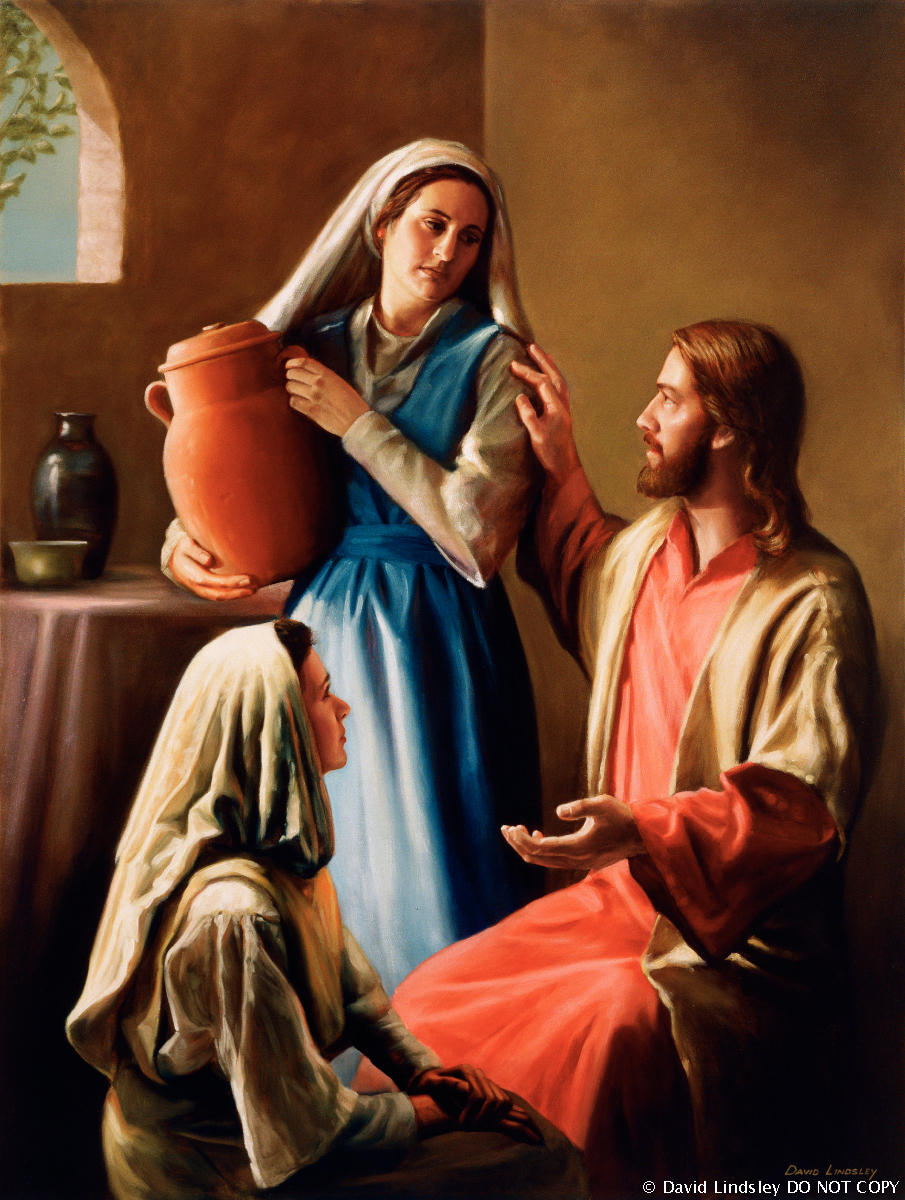I appreciated that at the Women's Session of the LDS General Conference last night, Linda K. Burton included Martha from the New Testament as a "certain woman"–a woman who knew the identity and power of Christ. I found it interesting that Martha was mentioned because I'd just learned something new about her a couple of days before.
Like many other women in the LDS church, I have been bothered before by Luke's story of Martha in Luke 10. I resented the fact that Jesus reprimanded Martha for handling her hosting duties.

But Jesus did no such thing. He never told Martha that she shouldn't have been serving. When Martha asked Jesus to tell Mary to help her, what Jesus said, in modern terms, was, "Martha, you worry about a lot of things. But Mary has chosen the most important thing." Then an interesting word that I can't modernize with a single substitute: "And it shall not be taken away from her." The phrase "shall not," from my understanding, literally means "shouldn't." But its use in the scriptures is often more imperative than that. So what Martha could have heard was "must not" or even "will not."
I think Jesus meant to do more than gently reprimand Martha with this statement; I think he was giving her a promise. And while my evidence is far from surefire proof, I'm convinced that Martha took it that way.
My evidence comes from John's story of Martha, Mary, and their brother, Lazarus–the story Sister Burton referenced in her talk. I'd always appreciated the testimony Martha bore in this chapter, but I never appreciated some of John's other details until the other day. At this point, Lazarus had died, and "many of of the Jews" had come to to Martha and Mary's house to comfort them. Even while in mourning, Martha doubtless had hostess duties to attend to again.
But when she heard that Jesus was on his way, she left her guests and went straight to Jesus. How about that for change of priorities?
And that's not even all. While she did express her grief that Jesus had not been present sooner to prevent Lazarus' death, Martha followed with three confident statements–three statements that say even more than meets the eye.
"But I know, that even now, whatsoever thou wilt ask of God, God will give it thee." I don't need to worry about what happens next.
"I know that [my brother] shall rise again in the resurrection at the last day." My brother hasn't been permanently taken away from me.
"I believe that thou art the Christ, the Son of God, which should come into the world." I know that you are the most important thing.
Jesus' reproof and covenant–yes, covenant–had not fallen on deaf ears. Jesus had covenanted that if Martha would put Him first, her most precious things could not be taken away forever. Despite the fact that neither her brother nor her Master had yet emerged alive from their tombs, Martha testified of these truths.
And then what? In the beautiful opposite of her actions in Luke 10, Martha went to Mary to ask her to come to Jesus, too. This perfect resolution makes me want to pump a victory fist. As does John's approving note in the next chapter that "they made him a supper, and Martha served."
I'm so grateful to Jesus and Martha for reminding me that serving–all of our necessary duties that bless ourselves and others–are good and needed, but that focusing first on Christ and bringing others to Him is our insurance for present and eternal joy.
No comments:
Post a Comment